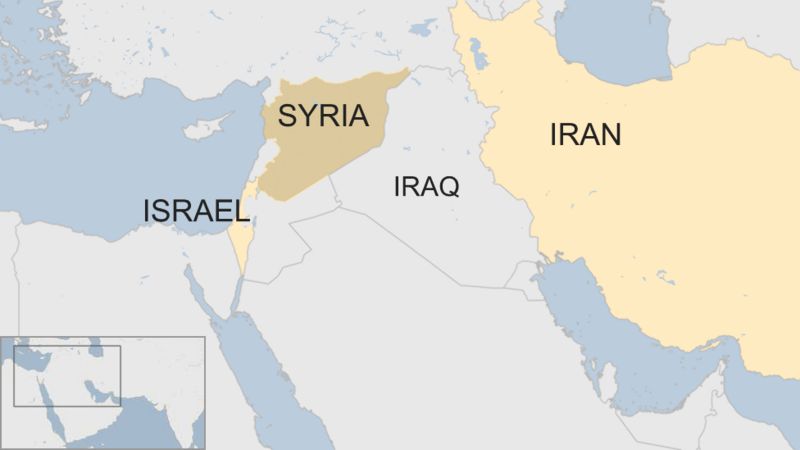Historical Context and Background: Israel Iran News

The relationship between Israel and Iran has been marked by deep mistrust and conflict, rooted in a complex interplay of historical, political, religious, and ideological factors. While the two countries have shared some commonalities, including a history of Jewish and Persian cultural interaction, their modern relationship has been dominated by animosity.
Origins of the Israeli-Iranian Conflict, Israel iran news
The Israeli-Iranian conflict has its roots in the tumultuous events of the 20th century. The establishment of Israel in 1948, following the partition of Palestine, was met with hostility by many Arab states, including Iran. Iran’s support for the Palestinian cause, combined with its own growing regional ambitions, led to a deepening of tensions with Israel.
Current Events and Developments

The Israel-Iran relationship remains one of the most complex and volatile in the Middle East. Both countries have a long history of conflict, and their current interactions are shaped by a combination of political, economic, and military factors. This section will provide an overview of recent news and developments, analyzing the latest statements and actions of both governments, and discussing the impact of regional and international actors on the relationship.
Recent Developments and Statements
The recent events highlight the ongoing tension between Israel and Iran, with both countries engaged in a complex game of brinkmanship.
- Iran’s Nuclear Program: Iran’s nuclear program continues to be a major point of contention between the two countries. While Iran insists that its nuclear program is for peaceful purposes, Israel remains skeptical and has repeatedly threatened military action if necessary. The recent negotiations between Iran and world powers over the Joint Comprehensive Plan of Action (JCPOA) have been marked by setbacks and disagreements, further fueling tensions.
- Cyber Warfare and Espionage: Cyber warfare and espionage have become a prominent feature of the Israel-Iran conflict. Both countries have been accused of conducting cyberattacks against each other’s infrastructure and institutions. Recent reports have highlighted the increasing sophistication of these cyber operations, raising concerns about the potential for significant damage and destabilization.
- Regional Proxy Conflicts: Israel and Iran are also engaged in proxy conflicts across the Middle East, supporting different factions in regional conflicts. This includes the Syrian Civil War, where Iran backs the Syrian government, while Israel has reportedly carried out airstrikes against Iranian-backed forces. The conflict in Yemen also serves as a proxy battleground, with Iran backing Houthi rebels, while Israel has expressed concern over Iranian influence in the region.
- International Pressure and Diplomacy: The international community has been involved in efforts to manage the Israel-Iran conflict, with various countries and organizations attempting to de-escalate tensions and promote dialogue. The United States has been a key player, imposing sanctions on Iran and seeking to curb its nuclear program. Other regional actors, such as the United Arab Emirates and Saudi Arabia, have also played a role in attempting to influence the relationship.
Potential Future Scenarios

The relationship between Israel and Iran is complex and fraught with tension, making it difficult to predict future developments. However, by examining various factors, we can explore potential scenarios for their future relationship. These scenarios have significant implications for regional security and stability, highlighting the need for understanding and potential strategies for de-escalation and conflict resolution.
The Potential for Escalation and Conflict
The current situation between Israel and Iran is characterized by a high level of mistrust and animosity. This is fueled by a number of factors, including Iran’s nuclear program, its support for militant groups in the region, and Israel’s military strikes against Iranian targets. These tensions could lead to a full-blown conflict, with potentially devastating consequences for the region.
- Increased military activity: A significant escalation in the conflict could occur if Iran continues to develop its nuclear program, leading to military strikes by Israel or the United States.
- Proxy wars: Iran’s support for militant groups in the region, such as Hezbollah in Lebanon and Hamas in Gaza, could lead to proxy wars with Israel.
- Cyberwarfare: Iran and Israel are already engaged in cyberwarfare, and this could escalate into a major conflict with significant consequences for critical infrastructure and economic stability.
The Potential for De-escalation and Cooperation
Despite the current tensions, there is also the possibility of de-escalation and cooperation between Israel and Iran. This would require a significant shift in the current political climate, but it is not entirely out of the question.
- Negotiations: Direct negotiations between Israel and Iran could lead to a resolution of some of the key issues that are driving the conflict.
- Regional security cooperation: Cooperation on issues of common concern, such as counterterrorism and the fight against ISIS, could help to build trust and reduce tensions.
- Economic engagement: Increased economic ties could create incentives for cooperation and reduce the likelihood of conflict.
The Potential for a Status Quo
The relationship between Israel and Iran could remain in a state of stalemate, with periodic flare-ups of violence. This scenario is characterized by a lack of progress on key issues and a continued high level of mistrust.
- Continued military activity: The two countries could continue to engage in military activities, such as airstrikes and cyberwarfare, without escalating to a full-blown conflict.
- Proxy wars: Iran could continue to support militant groups in the region, leading to periodic clashes with Israel.
- Limited diplomatic engagement: There could be limited diplomatic engagement between the two countries, but no significant progress on resolving key issues.
